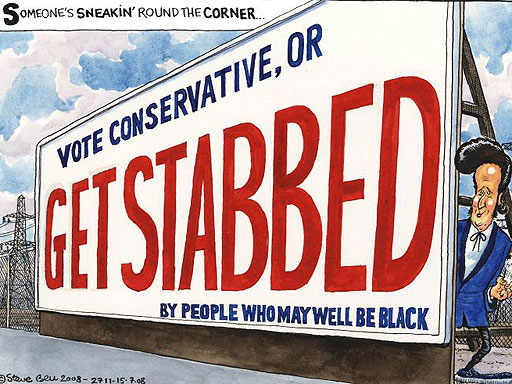The problems society faces with drugs and knives, and the solutions required, are dramatically different, but there are very marked similarities in the media and political discourse around both. Comparing the current moral panic about knife crime to the recent moral panic about cannabis in particular we can see much in common.
Sometimes it is difficult to understand what precipitates a media panic, although in the case of cannabis it was clearly centered around political opportunism from Government opponents exploiting the 2004 reclassification to accuse Blair/Brown of being soft on drugs/crime. ‘Soft on drugs’ is a charge that is far more powerful if the dangers of drugs are hyped with statistical shenanigans, and backed up with scary headlines (see above) and heart rending anecdotes of lost or wasted youth. It’s the old trick of stoking up fear and then politically exploiting the hell out of it. Old, but still brilliantly effective.
The knife panic, by contrast, seems to have been more tabloid driven, going into overdrive when one of the victims turned out to be the brother of a soap celebrity (who just happens to be a lad's mag ‘stunna’). Not that this has stopped mainstream politicians of all hues jumping on the bandwagon.

More depressing are the similarities in how politicians respond to endless series of media panics about
Knife crime is a terrible problem (as I well know, being one of its victims) but it’s certainly nothing new. Yet the recent media frenzy has led to a raft of new initiatives being announced within an amazingly brief time period, in the last week almost on a daily basis. Meanwhile there is no media panic about, for example, spousal abuse and violence (which kills and injures far more than knives) and no significant policy responses being announced or even contemplated. The same could be said for any number of social problems that, for whatever reason (not sexy enough, gory enough, and/or don’t involve lad’s mag 'stunnas' or Amy Winehouse), don’t merit the attention of the newspaper editors.
Moral panics can be whipped up with quite astonishing speed, prompting the predictably stupid pro-forma government criminal justice led crack down / initiative, and then apparently disappearing from public view almost as quickly. Since its reclassification back to B cannabis has barely warranted a single mention in the media. The level of problems associated with its use amongst young people or the ‘cannabis factories’ run by evil foreign people have not diminished one bit, but there is just no political capital in it anymore, no conflict to get excited about, and the story has blown itself out. The media panic achieved its goal: It’s been re -classified now, everything is OK. Result!
"NEXT! "
And unless some more celebrity relations get stabbed, or an attractive white young female is the next victim, knives will be old news in a few weeks, and disappear just as the recent panics about guns, alcohol, hoodies, cannabis, and child abductions (etc) all have, to be replaced by something new, or recycled after a period of lying dormant (maybe satanic messages in heavy metal records are due a come back?)
If we are ever going to get real solutions to some of these seemingly intractable problems on the streets of Britain’s cities – and no one is denying they exist – what we need is for politicians to have the courage to defy the populist rantings of tabloids or political opponents and to deal with the complex social problems we face as policy scientists rather than pollsters. You are supposed to be our leaders; How about showing some leadership?
It might even help make people respect you again.
cartoon - thanks to Steve Bell, the Guardian








4 comments:
I wonder if anyone could actually measure the column inches devoted to knife crime and cannabis since the decision to re-classify; as you say it might highlight the baton passing on nicely.
Yes, it might be a good idea for a media studies student project/thesis.
I imagine you could do a fairly simple version using daily word counts (most obviously knife and cannabis ) and lexus nexus (which I don't have access to unfortunately). then plot a graph marking key events.
Anyone interested?
t the centre of increased knife crime is pack mentality and the protection of market territory in illicit drugs.Indeed, drug laws are often young peoples first experience of authorities influencing their lives as they move from the family system and before joining the adult social system. Many young people rightly view drug laws as hypocritical, prejudicial and discriminatory. Drug laws may then greatly influence a growing distrust and even disregard of authority. The two trends, increased non-compliance with drug laws and increased distrust in authorities may have a reciprocal causal relationship.
"Dangerous skunk floods London"
Pepe le Pew?
Post a Comment